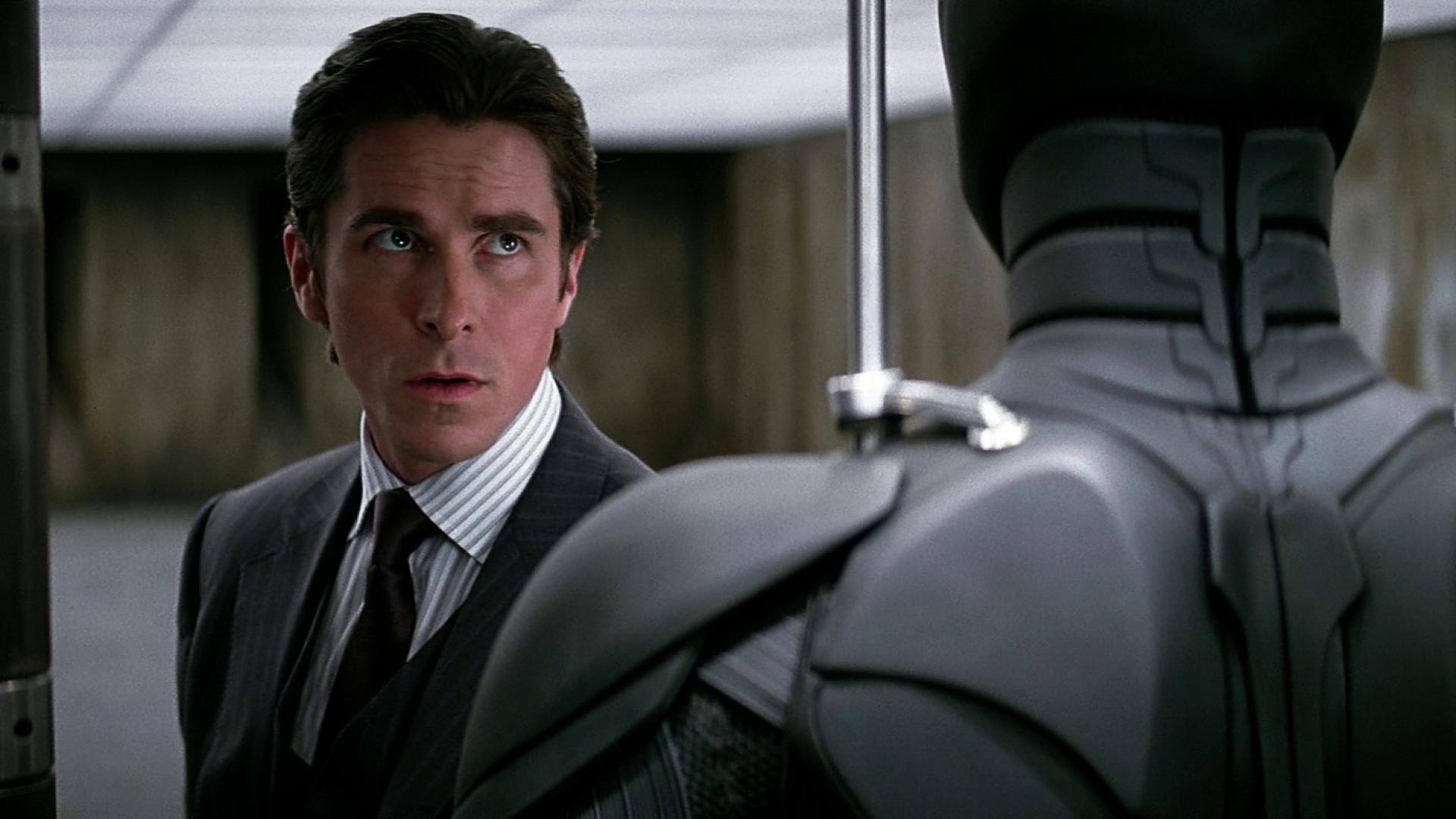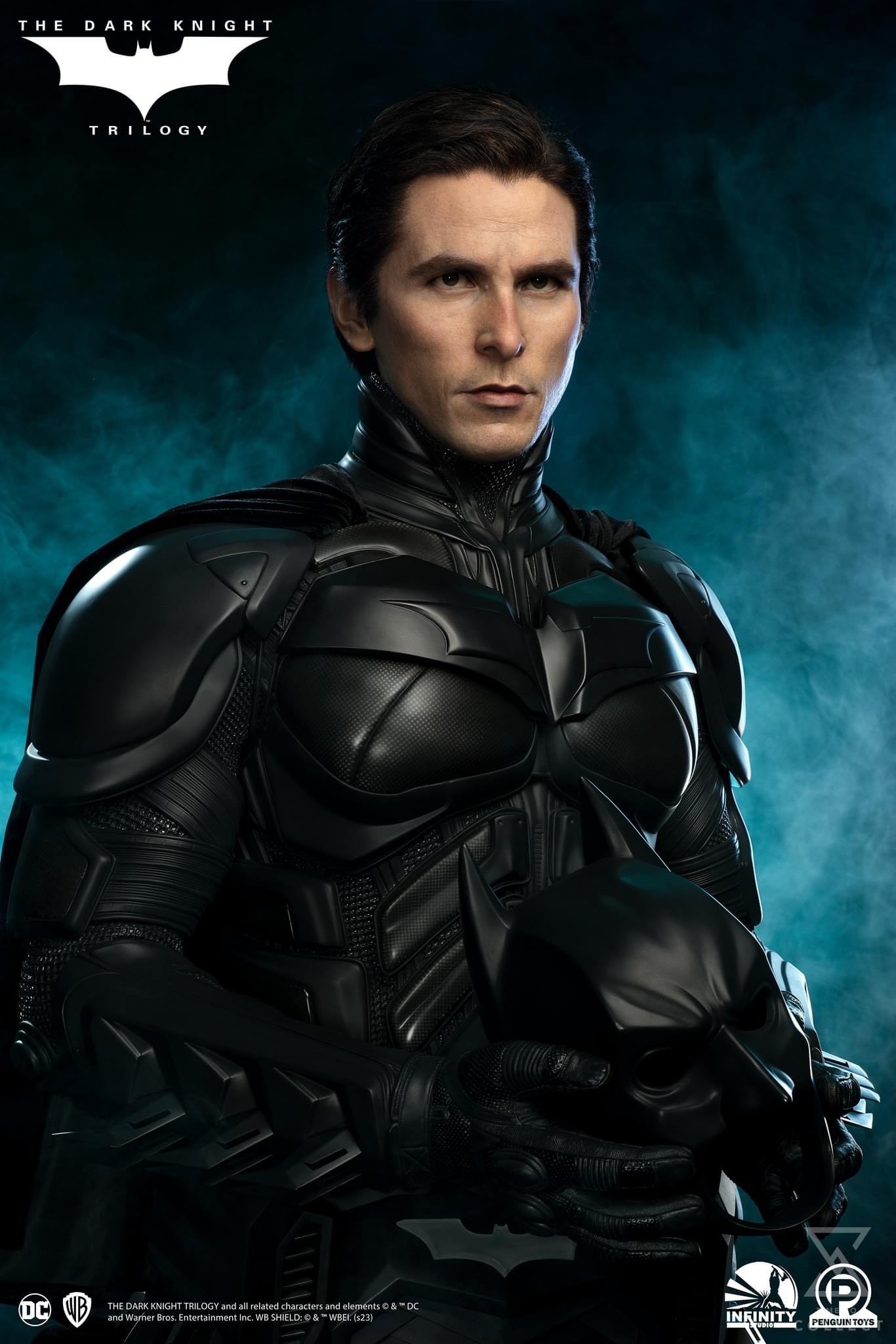Imagine a world where Val Kilmer dons the cape and cowl as Bruce Wayne, bringing his own unique flair to the iconic role of the Dark Knight. While Michael Keaton, Christian Bale, and Ben Affleck are often the names that come to mind when discussing Batman, Val Kilmer's portrayal in *Batman Forever* offers a fascinating glimpse into what could have been. With his brooding intensity and undeniable charisma, Kilmer brought a distinct energy to the role that has sparked debates among fans for decades. His interpretation of Bruce Wayne remains a compelling chapter in the history of the Caped Crusader, one that deserves closer examination.
Val Kilmer's tenure as Batman was brief but impactful, leaving a lasting impression on audiences and critics alike. Directed by Joel Schumacher, *Batman Forever* marked a shift in tone from Tim Burton's darker aesthetic to a more colorful, family-friendly approach. Despite the film's mixed reception, Kilmer's performance as Bruce Wayne/Batman stood out as a highlight. His ability to balance the duality of Bruce Wayne's public persona and Batman's vigilante persona showcased his versatility as an actor. This unique take on the Dark Knight continues to resonate with fans who appreciate Kilmer's nuanced portrayal.
What sets Val Kilmer's Bruce Wayne apart from other iterations? Was his portrayal truly underappreciated, or did it fall short of expectations? These questions have lingered in fan circles for years, making Kilmer's Batman a topic of endless fascination. By exploring his journey to the role, his interpretation of the character, and the legacy he left behind, we can gain a deeper understanding of why Val Kilmer's Bruce Wayne remains a unique and intriguing chapter in the Batman saga.
Read also:Lexi2legit Erone The Journey Achievements And Impact Of A Rising Star
Table of Contents
- Biography of Val Kilmer
- What Made Val Kilmer Stand Out as Bruce Wayne?
- The Making of Batman Forever: Val Kilmer's Journey
- How Did Val Kilmer Interpret the Duality of Bruce Wayne?
- Val Kilmer vs. Other Batmans: A Comparative Analysis
- Why Is Val Kilmer Often Overlooked in Discussions About Batman?
- The Legacy of Val Kilmer as Batman
- Frequently Asked Questions
Biography of Val Kilmer
Val Kilmer, born on December 31, 1959, in Los Angeles, California, is an acclaimed actor known for his versatility and depth in a wide range of roles. From his early days at the Juilliard School to his breakout performances in films like *Top Gun*, *The Doors*, and *Tombstone*, Kilmer has carved out a unique niche in Hollywood. His career spans decades, showcasing his ability to inhabit complex characters with authenticity and emotional resonance.
To better understand Val Kilmer's journey, here is a brief overview of his personal details and bio data:
| Full Name | Val Edward Kilmer |
|---|---|
| Date of Birth | December 31, 1959 |
| Place of Birth | Los Angeles, California, USA |
| Education | Juilliard School (Drama Division) |
| Notable Works | Top Gun, The Doors, Tombstone, Batman Forever |
| Family | Parents: Eugene Dorris Kilmer, Gladys Swan Kilmer; Siblings: Mark Kilmer, Wesley Kilmer |
Val Kilmer's career has been marked by both triumphs and challenges, including his battle with throat cancer, which has shaped his later years. Despite these obstacles, he remains a beloved figure in the entertainment industry, admired for his dedication to his craft and his willingness to take on unconventional roles.
What Made Val Kilmer Stand Out as Bruce Wayne?
When Val Kilmer stepped into the role of Bruce Wayne in *Batman Forever*, he brought a unique blend of sophistication, mystery, and vulnerability to the character. Unlike his predecessors, Kilmer's Bruce Wayne was less eccentric and more grounded, emphasizing the psychological depth of a man torn between his public persona and his vigilante alter ego. His portrayal was marked by a quiet intensity that resonated with audiences, even amidst the film's more flamboyant elements.
One of the key aspects that set Kilmer apart was his ability to convey Bruce Wayne's internal struggles without relying heavily on dialogue. His expressive eyes and subtle body language spoke volumes, allowing viewers to glimpse the pain and determination that fueled Batman's mission. This approach aligned with the character's comic book origins, where Bruce Wayne's duality is a central theme.
Kilmer's chemistry with the film's supporting cast, including Chris O'Donnell as Robin and Nicole Kidman as Dr. Chase Meridian, further elevated his performance. He managed to create a believable dynamic with his co-stars, grounding the film's more outlandish moments with his grounded portrayal of Bruce Wayne. This balance of gravitas and charm made his take on the Dark Knight a memorable one.
Read also:Unlocking The Power Of Spiralingspirit A Journey To Inner Growth And Transformation
Why Did Val Kilmer's Batman Feel Different from Others?
Val Kilmer's Batman stood out because of its emotional depth and restraint. While other actors leaned into the theatricality of the role, Kilmer opted for a more introspective approach. His Bruce Wayne was less of a playboy and more of a recluse, haunted by his past and driven by a sense of duty. This interpretation added a layer of realism to the character, making him feel more relatable and human.
How Did Val Kilmer's Background Influence His Performance?
Kilmer's training at Juilliard and his experience in method acting undoubtedly shaped his portrayal of Bruce Wayne. His ability to tap into the character's emotional core allowed him to deliver a performance that was both nuanced and compelling. This background in theater and drama gave him the tools to explore the psychological complexities of Batman in a way that felt authentic and engaging.
The Making of Batman Forever: Val Kilmer's Journey
The production of *Batman Forever* was a turning point for the franchise, as it sought to move away from Tim Burton's darker vision and embrace a more lighthearted, family-friendly tone. Directed by Joel Schumacher, the film introduced a new aesthetic characterized by vibrant colors, elaborate sets, and a more playful narrative. For Val Kilmer, this shift presented both opportunities and challenges as he stepped into the iconic role of Bruce Wayne.
Kilmer's casting as Batman was met with a mix of excitement and skepticism. Known for his intense performances in films like *Tombstone* and *The Doors*, he brought a level of gravitas that seemed at odds with Schumacher's vision. Despite these differences, Kilmer embraced the role with dedication, undergoing rigorous physical training and immersing himself in the character's psyche. His commitment to the role was evident in his performance, which balanced the film's campy elements with moments of genuine emotion.
Behind the scenes, however, tensions ran high. Kilmer's clashes with Schumacher over the direction of the film have been well-documented, with the actor reportedly frustrated by the lack of creative control. These conflicts, while challenging, ultimately shaped his portrayal of Bruce Wayne, adding an edge of defiance and complexity to the character. Despite the difficulties, Kilmer's performance remains a testament to his professionalism and talent.
How Did Val Kilmer Interpret the Duality of Bruce Wayne?
One of the most compelling aspects of Val Kilmer's portrayal of Bruce Wayne was his exploration of the character's duality. In *Batman Forever*, Kilmer masterfully depicted the internal conflict between Bruce Wayne's public persona and his vigilante alter ego, Batman. This duality is a cornerstone of the Batman mythos, and Kilmer's interpretation brought a fresh perspective to the character.
Kilmer's Bruce Wayne was not the charming playboy seen in previous iterations but rather a more introspective and reserved figure. He portrayed Bruce as a man burdened by his past, struggling to reconcile his desire for justice with the trauma of losing his parents. This inner turmoil was conveyed through subtle expressions and gestures, allowing audiences to connect with the character on a deeper emotional level.
The film's narrative also highlighted the tension between Bruce's responsibilities as a billionaire philanthropist and his role as Gotham's protector. Kilmer's performance captured this balance with remarkable nuance, showcasing the sacrifices Bruce makes to maintain his dual identity. His portrayal emphasized the loneliness and isolation that come with being Batman, adding layers of complexity to the character.
What Challenges Did Val Kilmer Face in Portraying Bruce Wayne's Duality?
One of the primary challenges Kilmer faced was balancing the film's lighter tone with the inherent darkness of the Batman character. While Schumacher's vision leaned toward spectacle, Kilmer remained committed to exploring the psychological depth of Bruce Wayne. This tension required him to navigate conflicting creative directions, ultimately resulting in a performance that bridged the gap between the two approaches.
How Did Val Kilmer's Interpretation Compare to Comic Book Versions?
Kilmer's portrayal of Bruce Wayne aligned closely with certain comic book iterations, particularly those that emphasized the character's introspective nature. His interpretation echoed the themes of loss and redemption found in classic Batman stories, resonating with fans who appreciated the character's emotional complexity. By staying true to these core elements, Kilmer delivered a performance that honored the source material while bringing his own unique perspective to the role.
Val Kilmer vs. Other Batmans: A Comparative Analysis
When discussing Val Kilmer's portrayal of Batman, it's impossible not to compare it to other actors who have donned the cape and cowl. From Michael Keaton's groundbreaking performance to Christian Bale's gritty interpretation, each actor has brought something unique to the role. Kilmer's Batman occupies a unique space in this lineage, offering a blend of sophistication and restraint that sets him apart from his peers.
Michael Keaton, the first to bring Batman to the big screen in Tim Burton's films, established the character as a brooding, enigmatic figure. His Bruce Wayne was eccentric and unpredictable, capturing the darker aspects of the character. In contrast, Kilmer's Bruce Wayne was more grounded and introspective, emphasizing the psychological toll of being Batman. While Keaton's portrayal leaned into the fantastical elements of the story, Kilmer focused on the human side of the character.
Christian Bale's Batman, introduced in Christopher Nolan's *Dark Knight* trilogy, took a more realistic and gritty approach. Bale's Bruce Wayne was a man shaped by trauma and driven by a sense of justice, much like Kilmer's interpretation. However, Bale's performance was more physical and intense, reflecting the darker tone of Nolan's films. Kilmer, on the other hand, brought a quieter intensity to the role, relying on subtlety and emotional depth to convey Bruce Wayne's inner struggles.
How Did Val Kilmer's Batman Compare to Ben Affleck's Version?
Ben Affleck's portrayal of Batman in the DC Extended Universe was marked by a sense of world-weariness and moral ambiguity. His Bruce Wayne was older and more jaded, reflecting the toll of years spent fighting crime. While Affleck's Batman was defined by his physicality and combat skills, Kilmer's version focused more on the character's emotional and psychological dimensions. This difference in emphasis highlights the versatility of the Batman character and the diverse ways it can be interpreted.
Why Is Val Kilmer Often Overlooked in Discussions About Batman?
Despite his compelling performance in *Batman Forever*, Val Kilmer's portrayal of Batman is often overshadowed by other actors who have played the role. This oversight can be attributed to several factors, including the film's mixed reception and the challenges Kilmer faced during production. However, his contribution to the Batman legacy deserves recognition and appreciation.
One reason Kilmer's Batman is overlooked is the film's shift in tone under Joel Schumacher's direction. While Tim Burton's *Batman* films were celebrated for their dark, gothic aesthetic, *Batman Forever* embraced a more colorful and campy style. This change alienated some fans who preferred the darker interpretation of the character, leading to a diminished appreciation for Kilmer's performance.
Additionally, Kilmer's clashes with Schumacher and his reluctance to promote

